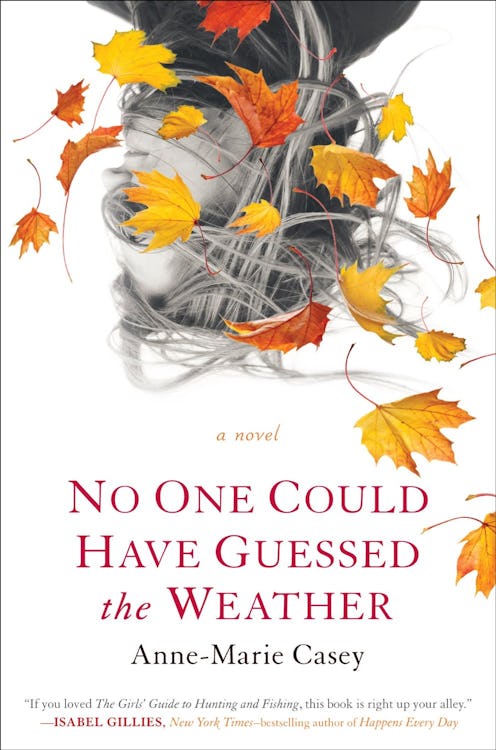Books
Casey's 'Guessed the Weather' and the Rubicon of 40

About three paragraphs down the summary on the jacket of No One Could Have Guessed the Weather I was stopped by a sentence: "Sometimes what you want in your twenties isn't what you want or need in your forties."
I had literally had the book open for 45 seconds, and already it had produced a smattering of worries: Am I wishing for the wrong things? In another 20 or so years am I going to end up with everything I hope for now, but it won't be at all what I actually need?
Yet, throughout the entire novel I found myself laughing and agreeing with the truths and desires of the four female protagonists, from London transplant Lucy to trophy wife Christy. What kept me hooked to the book was not the plot that seemed almost to be interrelated short stories, but rather the witty language and the perfectly phrased gems summing up life and what it means to be a woman that Anne-Marie Casey scattered amply through the narrative like gifts.
The disheveled Robyn, married to an aspiring author who pretty much failed the "transition-into-adulthood" test, spent much of the novel alienating herself from the other women until she finally had an epiphany: "For so long she had wanted nothing more than to sit with the cool girls at the back of the school bus, but she realized now that she could have all along. It was not them stopping her. It was her. She had radiated a mixture of fear and disdain and had created a drama about her own rejection that they were oblivious to." This is in no way a middle-aged-woman problem and realization, but an every-woman problem. Who hasn't looked back on a missed friendship and realized they were the only ones standing in the way?
Then there is Julia who leaves her husband and kids during a nervous breakdown, but then faces enough scorn to induce another breakdown. She describes her child's meals as the "I'm never there, but I feel less guilty if you don't eat sugar" diet, which is basically how I treat my under-excersized-but-well-fed body (oops). I am sure no one under 40 has ever overcompensated for a weakness, real or supposed, right?
And dear Christy, the aforementioned trophy wife with a drifty nature. After several encounters with the doorman, including asking him to fix the fridge, she "made him a cup of tea and decided to prove to him that she was not the person he imagined her to be." I think everyone who still feels like they are searching for who they are could relate to Christy. (On that note, if there is anyone out there who has successfully finished said search, send tips.)
Lucy bookends the novel and also serves to fill our anglophile desires by calling sweatshirts "jumpers" and allowing us to occasionally read with a British accent. After a self-applied New York City makeover, Lucy felt "that her outside matched her inside and the rest of her life's dressing had been a series of costume changes that didn't quite work." (And every woman who successfully survived puberty gave a hearty "amen".) Later she adds, "sometimes when I think of all the time I've wasted, I feel so sad I don't know what to do with myself." I hear you, girlfriend. Three words: Netflix instant replay. In the concluding chapter, Lucy tries her hand at writing because, as she so aptly put it, "what was the point of reading a book and thinking 'I could do that' when the only valid response would be, 'Maybe, but you didn't, did you?'" Okay, I can't hide it anymore. Lucy is my favorite.
In the end, I found myself with a rather dog-eared novel and wondering what the big deal with the so-called "Rubicon of forty" is. After all, the women's struggles and thoughts were relatively timeless. But beyond that, I look at what they do in the spans of the novel—get married, have children, change carriers, follow passions—and it doesn't look so different from 20. Maybe instead of being scared of an arbitrary age that supposedly defines us so deeply, we need to accept that life is never as settled and as figured out as we think it will be; that 30, 40, and 50 will pass us by and we will still be figuring out some things, finding and following new passions, and faking it in the mean time. Or, maybe 80 is just the new 40.